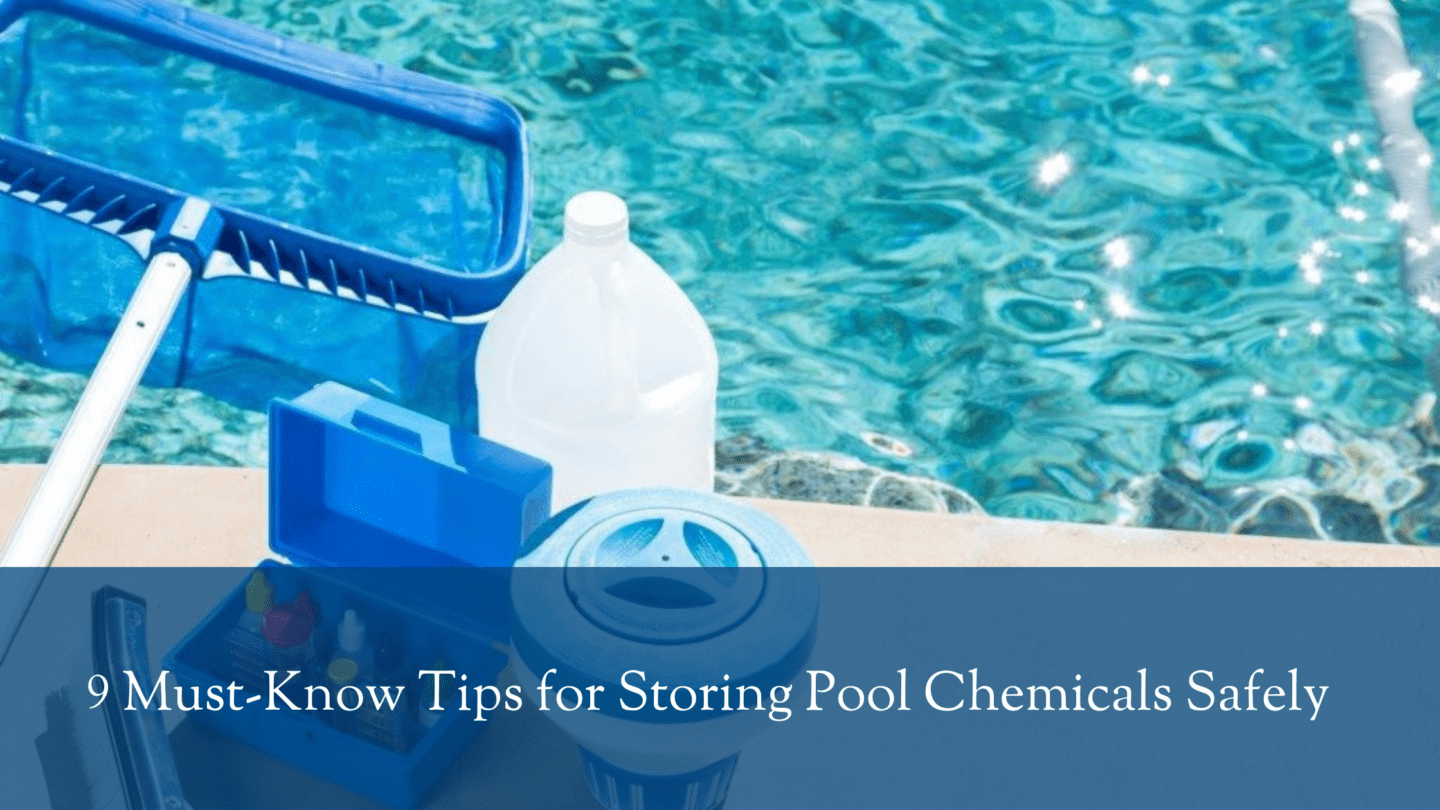Pool chemicals may keep your water clean and clear — but only if they’re stored correctly. Improper storage can lead to dangerous chemical reactions, damage to your property, and even serious health risks.
If you’re a new pool owner or a seasoned pro, these 9 tips will help you store your pool chemicals safely, smartly, and stress-free.
1. Store Chemicals in a Cool, Dry Place
Heat and moisture are a dangerous mix for pool chemicals. Keep them in a well-ventilated area out of direct sunlight. A temperature-controlled shed, storage box, or garage corner works great — just avoid damp basements or hot attics.
2. Keep Everything in Its Original Container
Resist the urge to “organize” by transferring chemicals into new bottles or bins. Original containers are made for safety — they’re labeled correctly, sealed tightly, and often designed to resist corrosion or leaks.
3. Never Stack Different Chemicals Together
Storing chlorine above liquids or shocks near flammables is very dangerous. Keep chemicals separated, ideally in bins or on shelves with adequate spacing. One accidental spill or leak could cause a chemical reaction that is very unsafe.
4. Use Childproof, Pet-Safe Storage Solutions
Kids and pets are curious — and pool chemicals can be fatal if ingested. Use a locked cabinet, high shelf, or weatherproof storage container that’s secure and inaccessible to little hands or paws.
5. Don’t Store Chemicals Near Metal, Tools, or Vehicles
Some chemicals (especially chlorine and acid) can cause metal to rust or corrode — even just from fumes. Keep pool supplies away from bikes, lawnmowers, or that vintage car you’re restoring.
6. Avoid Mixing Old and New Chemicals
If you’re topping off your container, stop! Mixing old and new chemicals can cause reactions — especially if moisture or contaminants are involved. Finish one container completely before opening a new one.
7. Use Labels — and Read Them
It’s tempting to “set and forget” pool supplies but always read the labels and safety instructions. Better yet, use waterproof tags or labels to keep track of expiration dates or special handling instructions.
8. Dispose of Expired Chemicals Properly
Don’t just toss expired chemicals in the trash or down the drain. Check with your local hazardous waste disposal site for the correct procedure.
9. Keep Liquid and Dry Chemicals Separate
Moisture can cause dry chemicals to clump, react, or even combust. Always store liquids and powders separately — and never let them come in contact, especially chlorine and acids.
Bonus Tip: Create a “Chemical Safety Checklist”
A simple checklist near your storage area helps remind you (or others) to check expiration dates, wear gloves, or lock up after use. It’s a small step that could prevent a big mistake.
Final Words:
Pool chemicals keep your water safe — but only if you treat them with the respect they deserve. With just a few smart storage habits, you’ll keep your pool running smoothly and your family safe.

